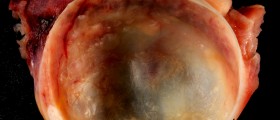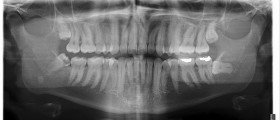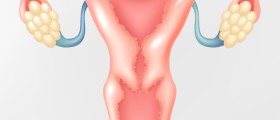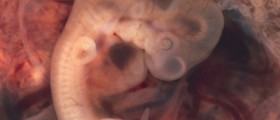
What Are Ovarian Cysts?
The ovaries are about the size of almonds and exist on each side of the uterus. Their function is to store and release eggs which is controlled by the female hormones such as progesterone and estrogen. Cysts are small sacs filled with fluid that resemble bubbles. These structures that develop within an ovary are common in females of childbearing age. Imbalance of female hormones can cause formation of abnormal ovarian cysts such dermoid cysts, endometrioma cysts and cytadenoma cysts. In most cases ovarian cysts are benign condition that resolves on its own. There are different signs that can indicate presence of ovarian cysts.
Signs and Symptoms of Ovarian Cysts
Very often, ovarian cysts do not produce any symptoms at all, especially if a cyst is small. They are usually detected during a routine ultrasound exam. The specific symptoms may appear when the tumors produce particular hormones. Feminizing tumors may cause bleeding even in postmenopausal women. In girls of the prepubertal age, with ovarian cysts may experience bleeding and develop breast and body hair.
Ovarian cysts that have reached larger size can induce swelling of the abdomen. Large cysts can also put pressure on the bladder and the bowel, causing an urge to urinate and defecate. This can also cause pain with urination or bowel movements.
Pain during sexual intercourse is a common sign of ovarian cysts. Heavy, irregular and painful menstrual periods, pelvic pain and or spotty bleeding from the vagina can also indicate ovarian cysts.
In women with actively masculine tumors, masculine traits like facial hair and deepening of the voice may start to develop. This can also cause an absence of menstrual bleeding.
Cysts that grow on a stem can cause twisting of the stem and result in severe pain, rapid heart beat and vomiting. Torsion of a cyst is a serious condition that requires immediate treatment. This condition is associated with fever, nausea and severe abdominal pain. Abnormal abdominal swelling also requires prompt intervention. Ruptured cysts can cause different symptoms, depending on the contents of the cyst but the pain is commonly present.
Constant, dull pain that stretches from the lower back to the thighs or sharp pelvic pain before menstrual bleeding starts or ends are additional signs of ovarian cysts. Abdominal bloating and feeling of fullness even after small amount of food consumed also signifies ovarian cysts.
Management of Ovarian Cysts
For permanent relief from ovarian cysts and associated symptoms, holistic approach is the only solution. Common medical treatment can not effectively treat ovarian cysts as it only treats the symptoms. This is done with several medications that do not provide long-term results and have many negative effects. Holistic treatment can effectively eliminate both the symptoms and ovarian cysts.

















Your thoughts on this
Loading...